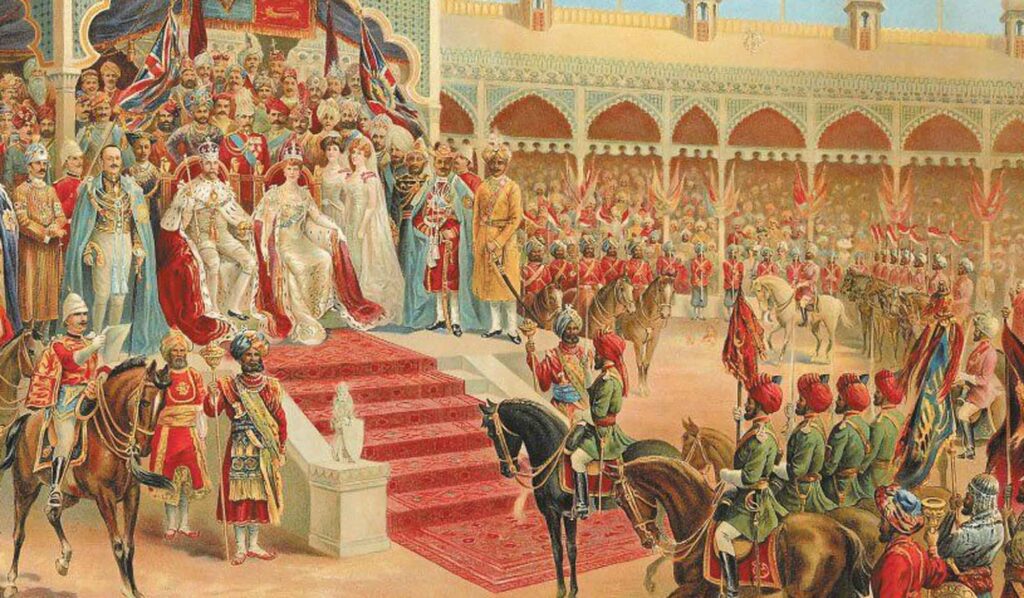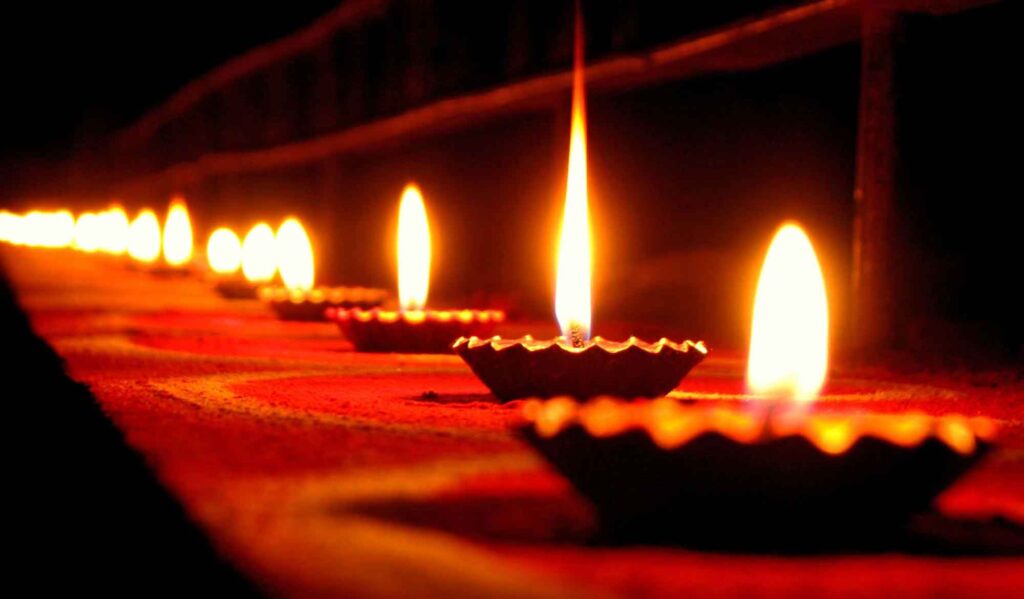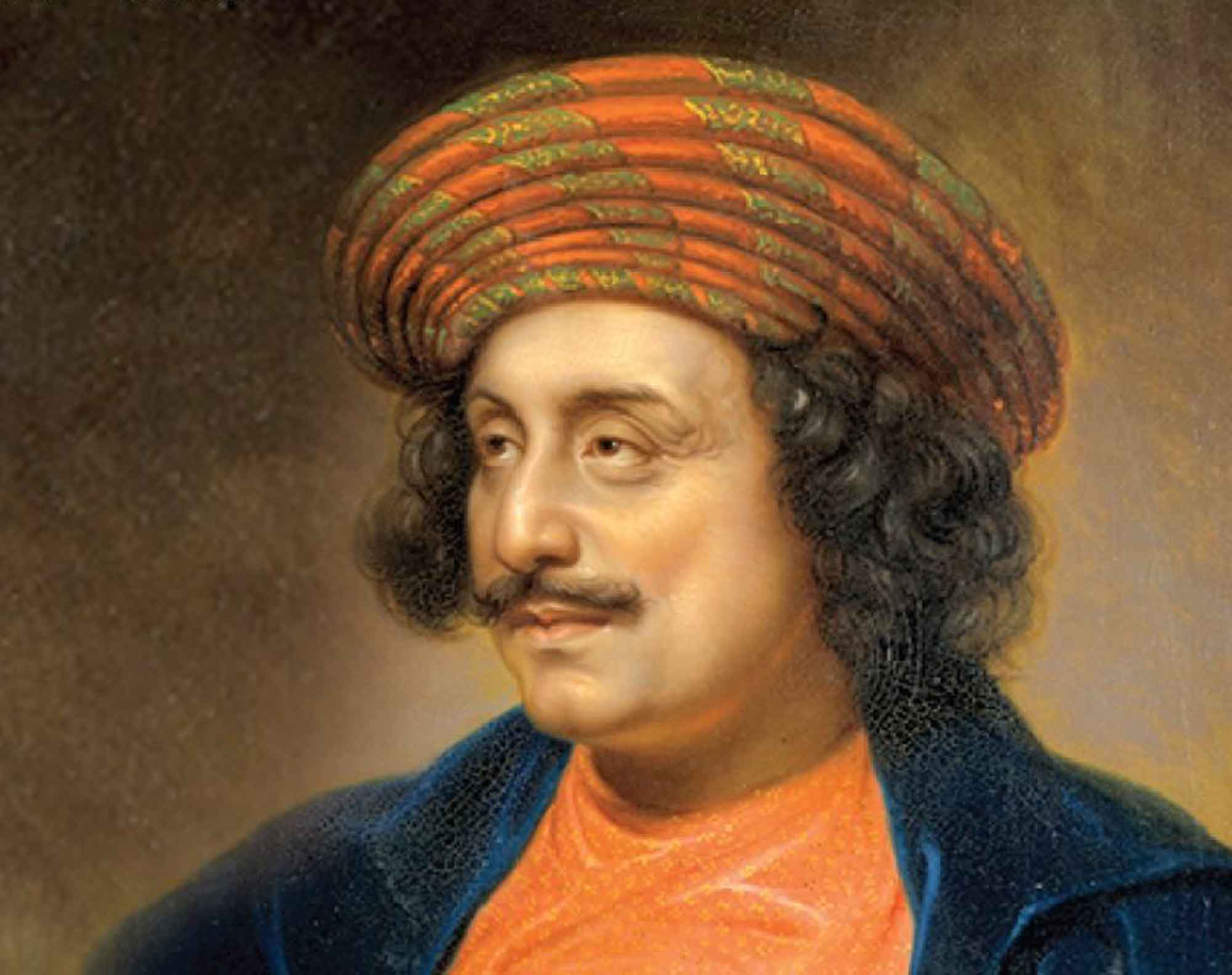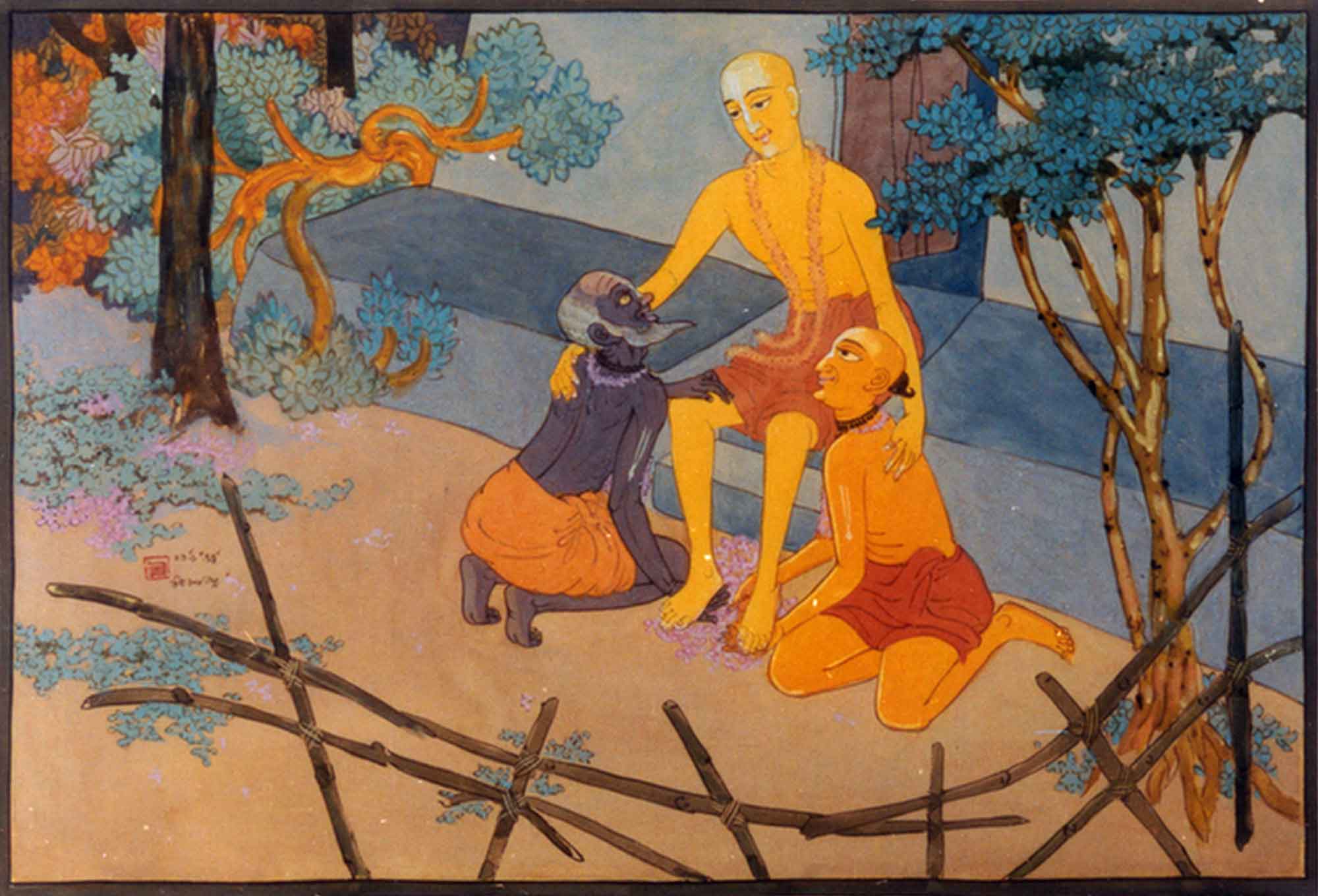Overview
Parahiṁsā u dayā (Violence and Mercy) was first published in Sajjana Toṣaṇī Vol.9, issue 9 in 1897. In this essay, Bhaktivinoda Ṭhākura describes the necessity of compassion and the different types of mercy for a jīva.
(translated by Swami B.V. Giri)
It is generally believed that violence is a great sin. Violence leads to hell. Violence is at the root of all sins, therefore it is far more serious than sin. Those who are fortunately engaged in kṛṣṇa-bhakti naturally have no inclination towards violence. For example:
ete na hy adbhutā vyādha tavāhiṁsādayo guṇāḥ
hari-bhaktau pravṛttā ye na te syuḥ paratāpinaḥ
“O hunter! Your non-violent qualities are not at all surprising, because those who engage in hari-bhakti do not oppress others.”
Slaughtering other creatures is the culmination of violence, as is written in Śrī Caitanya-Bhāgavata.
bhakti-hīna-karme kona phala nāhi pāya
sei karma bhakti-hīna parahiṁsā yāya
(“There is no benefit in activities that are devoid of bhakti. Such deeds that are devoid of bhakti simply result in violence.” – Caitanya-bhāgavata, Madhya-khaṇḍa 1.240)
Benevolent actions are devotional and violent actions are anti-devotional. There is no benefit in such actions! In order to eat the flesh of other jīvas, one must obviously perform violence, therefore such violent activities against other jīvas are unfavourable to bhakti. The fundamental understanding of this is that a soft heart is a sign of bhakti. Just as there is softness in kṛṣṇa-bhakti, there is also softness in jīva-dayā (mercy to other living beings). Jīva-dayā is especially a part of kṛṣṇa-bhakti. A devotee cannot be merciless, but when kindness is observed without devotion, it is only a dull feeling of softness within that person’s heart. As soon as that dull feeling is removed, bhakti and jīva-dayā become one, so the advice of Mahāprabhu in Caitanya-Bhāgavata is this –
prabhu bale vipra, saba dambha parihari
bhaja giyā kṛṣṇa, sarva-bhūte dayā kari
(The Lord said, “O brāhmaṇa, abandon your pride! Offer worship to Kṛṣṇa, and be merciful to all living beings.” – Caitanya-bhāgavata, Ādi-khaṇḍa 13.183)
There are three types of compassion. Kindness towards the gross body of the jīva is counted amongst pious deeds. Giving food to hungry jīvas, giving medicine to sick jīvas, giving water to thirsty jīvas, covering up a jīva who feels cold – all these are derived from kindness to the body. But mercy to the jīva in relation to the ātmā is above all. From such kindness, care is taken to save the jīvas from worldy miseries through kṛṣṇa-bhakti. Compassion for all living beings is certainly one of the great qualities of a Vaiṣṇava which will arise as bhakti manifests. But not all devotees can show mercy in different ways. Those who are rich and strong amongst the devotees can show kindness to the body and mind. But those devotees who do not have any wealth other than the treasure of kṛṣṇa-bhakti are always engaged in helping to end a jīva’s material life so they can achieve kṛṣṇa-bhakti. This is why they perform loud saṅkīrtana in the cities. By preaching, all other divisions of bhakti are accomplished. This type of mercy is eternal. The other two kinds of mercy are temporary. Pure devotees often see the degradation of the jīvas and care for their welfare as much as possible. Those persons who follow karma-kaṇḍa do not investigate the eternal well-being of the jīva, and only consider kindness in relation to the body and mind to be the most auspicious. Those persons following jñāna-kaṇḍa are more fond of mental compassion. Pure devotees strive for the eternal well-being of the jīvas by propagating bhakti. However, mercy is never different from bhakti. Their fundamental tendency is prema. If that prema is directed towards Kṛṣṇa, it is bhakti. If it is directed towards pious jīvas, it is friendship. If it is directed towards those jīvas who have achieved inauspiciousness, it is kindness. In the case of those who are extremely envious, which means they are fixed in their wickedness, then such persons are ignored.













